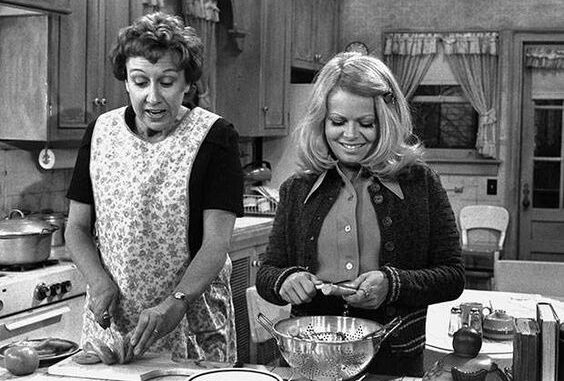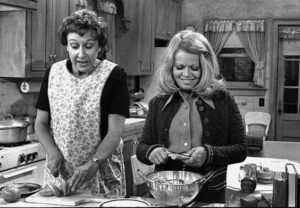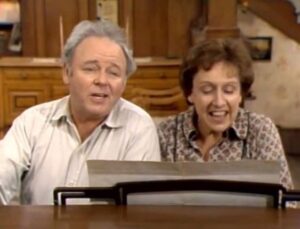
‘All in the Family’ set bar for relevance in sitcoms
“Guys like us, we had it made,” Archie and Edith Bunker sang to open episodes of All in the Family, one of television’s great comedies.
“Those were the days.”
As the Shout! Factory releases a boxed set this week containing all nine seasons of the series along with some tasty extras, it is clearer than ever what a singular phenomenon it was.
Before All in the Family, sitcoms were largely something to tune in for escape and reassurance. But as of Jan. 12, 1971, when All in the Family had its premiere on CBS as a midseason replacement, comedies suddenly had permission to be relevant.

The series was a huge hit, the No. 1 show on television for more than half its run. It represents one of the last times that the best show on television was also the most popular one.
Today, it often seems as if the opposite is true. Some of the best shows of our age — Mad Men, Breaking Bad — have relatively small audiences. (The recent Breaking Bad midseason finale drew an estimated 2.8 million viewers; a generic first-
season episode of All in the Family had more than 21?million, at a time when the United States had about 100 million fewer people than it does today.)
And, 40 years ago, when there were only three major networks, to be making All in the Family was to know that you were putting a topic on the American agenda all on your own.Norman Lear, who created All in the Family after being inspired by the British series Till Death Us Do Part, said it took awhile for him and his crew to grasp just how their little show about the Bunker family — the bigoted Archie; the daffy Edith; their flighty daughter, Gloria; her stridently liberal husband, Michael — was being received and what an opportunity they had.
“I would say for several years, ‘We’re just in the business of entertaining,’??” Lear said. “??‘ We’re not trying to send messages.’??”
He began to think differently, he said, when some people started to grouse.

“Perhaps the first time I realized we were doing something more than entertaining is when people said, ‘Hey, if you want to send a message, there’s Western Union.’??”
And so he and his writers began to embrace their role as agenda setters, not just via politically charged shouting matches between Archie and Michael, but also by introducing plotlines on subjects such as breast cancer and homosexuality.
As Ron Simon, curator of television and radio at the Paley Center for Media, put it in an interview, “I think Archie Bunker and Norman Lear were signaling that television is now going to be part of the culture.”
Credit that in part to the cast, whose brilliance is only reaffirmed by the boxed set.
The show’s crackle was in the way that particular foursome came together — one of the most memorable ensembles in TV history.